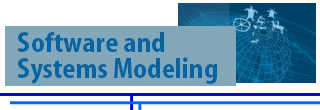About me

Associate Professor at the School of Computing and Mathematical Sciences, University of Leicester, UK.
European Doctorate in Computer Science.
Senior Fellow of the Higher Education Academy.
Artur is an associate professor at the School of Computing and Mathematical Sciences of the University of Leicester (UK). He obtained his BSc degree in Computer Science in 2002 (Ingeniero en Informática), with an award from Bancaixa/Bancaja for the final year project on data migration. He wrote his Master thesis DEA in 2004 and obtained his Ph.D. degree in Computer Science in 2007 (Doctor Cum Laude) from the Technical University of València (UPV). He has been a visiting researcher at University of Illinois at Urbana-Champaign (UIUC, USA) and at Universitat Politècnica de Catalunya (UPC, Spain). In 2007, he joined the University of Leicester (UK) as lecturer. Since 2018, he was Director of Undergraduate Programmes (Computer Science and Software Engineering, 2018-2023).
His research interests (click to expand) revolve around:
- agile software development for the cloud using JVM technology and applications in healthcare and industry 4.0;
- design and implementation of DSLs using model-driven software development and type theory;
- application of AI technology and formal methods in the intersection of the two areas above.
Artur has secured funding from Innovate UK for developing manufacturing software infrastructure in the food industry (2018-2019). He is the technical lead of the Informatics team in the ESA-funded project Personalised Space Technology Exercise Platform (P-STEP) (2021-2023).
He is a founding member of the EPSRC-funded MDENet: the expert network for Model-Driven Engineering. His current h-index is 14 (Scopus), 15.05 (ResearchGate), 20 (Google Scholar).
Contact information:
Office 610, Ken Edwards Building
School of Computing and Mathematical Sciences, University of Leicester
University Rd, Leicester, LE1 7RH, UK
On social media:
Professional Activities
2026

PC member of 29th International Conference on Fundamental Approaches to Software Engineering (FASE 2026)
Part of European joint conferences on theory and practice of software (ETAPS 2026)
2025
Invited talk of Personalised Space Technology Exercise Programme (P-STEP)
MedTech @ Leicester 2025, together with James Donaldson, Department of Cardiovascular Sciences
PC member of 3rd Workshop on Agile MDE
Part of STAF 2025

Co-chair of 28th International Conference on Fundamental Approaches to Software Engineering (FASE 2025)
Part of European joint conferences on theory and practice of software (ETAPS 2025)
2024

Programme Committee of 20th European Conference on Modelling Foundations and Applications (ECMFA 2024)
Part of Software Technologies: Applications and Foundations (STAF 2024)

Remote reviewer of Irish Research Council - postgraduate/postdoctoral programmes 2023/2024
Teaching & Admin
Taught modules
- Convenor of CO4217/CO7217 - Agile Cloud Automation (2024/2025)
MSc - 15 credits
Admin Roles
- BSc Director, Computer Science and Software Engineering programmes, School of Computing and Mathematical Sciences, University of Leicester, 2018 - 2023
Coordination of modules in undergraduate programmes 'Computer Science', 'Software Engineering' and BSc part (three first years) of 'MComp'.
- Chair of the Industrial Advisory Board of the School of Computing and Mathematical Sciences, University of Leicester, since 2023
Research Themes & Software

Funded opportunities
For those currenly looking for research-oriented opportunities and willing to work in model-driven engineering, AI/ML and healtcare.
EMF-Syncer
EMF-Syncer facilitates the adoption of Model-Driven Engineering techniques, and EMF-supported tooling, in JVM programs.
- Boronat, A. (2019). Code-First Model-Driven Engineering: On the Agile Adoption of MDE Tooling. Proceedings of the 34th IEEE/ACM International Conference on Automated Software Engineering (ASE 2019), San Diego, CA, November 11-15.
@inproceedings{BoronatASE19, author = {Boronat, Artur}, title = {Code-First Model-Driven Engineering: On the Agile Adoption of MDE Tooling}, booktitle = {Proceedings of the 34th IEEE/ACM International Conference on Automated Software Engineering (ASE 2019), San Diego, CA, November 11-15}, year = {2019}, publisher = {{ACM}}, webdownload = {2019-boronat-ase.pdf}, slideshare = {https://www.slideshare.net/aboronat/codefirst-modeldriven-engineeringon-the-agile-adoption-of-mde} }
- Boronat, A. (2020). EMF-Syncer solution to TTC 2020 round-trip migration case. Joint Proceedings of the 13th and 14th Tool Transformation Contests, 3089. http://ceur-ws.org/Vol-3089/ttc20_paper2_Boronat.pdf
@article{Boronat-2020-ttc20, author = {Boronat, Artur}, title = {EMF-Syncer solution to {TTC} 2020 round-trip migration case}, publisher = {CEUR Workshop Proceedings}, journal = {Joint Proceedings of the 13th and 14th Tool Transformation Contests}, year = {2020}, issn = {1613-0073}, volume = {3089}, webdownload = {2020-boronat-ttc.pdf}, url = {http://ceur-ws.org/Vol-3089/ttc20_paper2_Boronat.pdf} }
YAMTL
YAMTL is an EMF-based model-to-model transformation engine whose transformations are defined with an internal DSL of Xtend. The main strenghts of the language are its interoperability with Java, its expressiveness and its performance. YAMTL model transformation can also be executed incrementally.
- Boronat, A. (2018). Expressive and Efficient Model Transformation with an Internal DSL of Xtend. Proceedings of the 21th ACM/IEEE International Conference on MoDELS, 78–88.
@inproceedings{yamtl, author = {Boronat, Artur}, title = {Expressive and Efficient Model Transformation with an Internal DSL of Xtend}, booktitle = {Proceedings of the 21th {ACM/IEEE} International Conference on MoDELS}, publisher = {ACM}, year = {2018}, pages = {78--88}, webdoi = {https://doi.org/10.1145/3239372.3239386}, webdownload = {2018-boronat-models.pdf}, slideshare = {https://www.slideshare.net/aboronat/expressive-and-efficient-model-transformation-with-an-internal-dsl-of-xtend} }
- Boronat, A. (2020). Incremental execution of rule-based model transformation. International Journal on Software Tools for Technology Transfer, 1433-2787.
@article{2020-boronat-sttt, author = {Boronat, Artur}, title = {Incremental execution of rule-based model transformation}, publisher = {Springer}, journal = {International Journal on Software Tools for Technology Transfer}, year = {2020}, volume = {1433-2787}, webdoi = {https://doi.org/10.1007/s10009-020-00583-y}, webdownload = {2020-boronat-sttt.pdf} }
- Boronat, A. (2019). Offline Delta-Driven Model Transformation with Dependency Injection. FASE 2019, 11424, 134–150.
@inproceedings{BoronatFASE19, author = {Boronat, Artur}, title = {Offline Delta-Driven Model Transformation with Dependency Injection}, booktitle = {{FASE} 2019}, pages = {134--150}, year = {2019}, series = {LNCS}, volume = {11424}, publisher = {Springer}, webdoi = {https://doi.org/10.1007/978-3-030-16722-6}, webdownload = {2019-boronat-fase.pdf}, slideshare = {https://www.slideshare.net/aboronat/offline-deltadriven-model-transformation-with-dependency-injection} }
- Hinkel, G., García-Domínguez, A., Schöne, R., Boronat, A., Tisi, M., Calvar, T. L., Jouault, F., Marton, J., Nyíri, T., Antal, J. B., Elekes, M., & Szárnyas, G. (2021). A cross-technology benchmark for incremental graph queries. Software and Systems Modeling, 1619-1374. https://doi.org/10.1007/s10270-021-00927-5
@article{2021-ttc18-sosym, author = {Hinkel, Georg and Garc\'{i}a-Dom\'{i}nguez, Antonio and Sch\"{o}ne, Ren\'{e} and Boronat, Artur and Tisi, Massimo and Calvar, Th\'{e}o Le and Jouault, Fr\'{e}d\'{e}ric and Marton, J\'{o}zsef and Ny\'{i}ri, Tam\'{a}s and Antal, J\'{a}nos Benjamin and Elekes, M\'{a}rton and Sz\'{a}rnyas, G\'{a}bor}, title = {A cross-technology benchmark for incremental graph queries}, publisher = {Springer}, journal = {Software and Systems Modeling}, year = {2021}, volume = {1619-1374}, webdoi = {https://doi.org/10.1007/s10270-021-00927-5}, url = {https://doi.org/10.1007/s10270-021-00927-5}, webdownload = {2022-hinkel-ttc18-sosym.pdf} }
- Boronat, A. (2018). YAMTL Solution to the TTC 2018 Social Media Case. In Garcı́a-Domı́nguez Antonio, G. Hinkel, & F. Krikava (Eds.), Proceedings of the 11th Transformation Tool Contest, co-located with the 2018 Software Technologies: Applications and Foundations, TTC@STAF 2018, Toulouse, France, June 29, 2018. (Vol. 2310, pp. 65–78). CEUR-WS.org.
@inproceedings{BoronatTTC18, author = {Boronat, Artur}, title = {{{YAMTL}} Solution to the {TTC} 2018 Social Media Case}, booktitle = {Proceedings of the 11th Transformation Tool Contest, co-located with the 2018 Software Technologies: Applications and Foundations, TTC@STAF 2018, Toulouse, France, June 29, 2018.}, pages = {65--78}, year = {2018}, editor = {Garc{\'{\i}}a{-}Dom{\'{\i}}nguez, Antonio and Hinkel, Georg and Krikava, Filip}, volume = {2310}, publisher = {CEUR-WS.org}, webdownload = {2018-boronat-ttc.pdf} }
- Boronat, A. (2019). YAMTL Solution to the TTC 2019 TT2BDD Case. In Garcı́a-Domı́nguez Antonio, G. Hinkel, & F. Krikava (Eds.), Proceedings of the 12th Transformation Tool Contest, a part of the Software Technologies: Applications and Foundations (STAF 2019) federation of conferences: Vol. pending. CEUR-WS.org.
@inproceedings{2019-boronat-ttc-tt2bdd, author = {Boronat, Artur}, title = {{YAMTL} {S}olution to the {TTC} 2019 {TT2BDD} {C}ase}, booktitle = {Proceedings of the 12th Transformation Tool Contest, a part of the Software Technologies: Applications and Foundations (STAF 2019) federation of conferences}, year = {2019}, editor = {Garc{\'{\i}}a{-}Dom{\'{\i}}nguez, Antonio and Hinkel, Georg and Krikava, Filip}, volume = {pending}, publisher = {CEUR-WS.org}, webdownload = {2019-boronat-ttc-tt2bdd.pdf} }
- Boronat, A. (2019). YAMTL Solution to the TTC 2019 BibtexToDocbook Case. In Garcı́a-Domı́nguez Antonio, G. Hinkel, & F. Krikava (Eds.), Proceedings of the 12th Transformation Tool Contest, a part of the Software Technologies: Applications and Foundations (STAF 2019) federation of conferences: Vol. pending. CEUR-WS.org.
@inproceedings{2019-boronat-ttc-bib2doc, author = {Boronat, Artur}, title = {{YAMTL} {S}olution to the {TTC} 2019 {B}ibtex{T}o{D}ocbook {C}ase}, booktitle = {Proceedings of the 12th Transformation Tool Contest, a part of the Software Technologies: Applications and Foundations (STAF 2019) federation of conferences}, year = {2019}, editor = {Garc{\'{\i}}a{-}Dom{\'{\i}}nguez, Antonio and Hinkel, Georg and Krikava, Filip}, volume = {pending}, publisher = {CEUR-WS.org}, webdownload = {2019-boronat-ttc-bib2doc.pdf} }
- Boronat, A. (2021). Incremental execution of relational transformation specifications in YAMTL: a case with laboratory workflows. Joint Proceedings of the 13th and 14th Tool Transformation Contests, 3089. http://ceur-ws.org/Vol-3089/ttc21_paper7_labflow_Boronat_solution.pdf
@article{Boronat-2021-ttc21, author = {Boronat, Artur}, title = {Incremental execution of relational transformation specifications in YAMTL: a case with laboratory workflows}, publisher = {CEUR Workshop Proceedings}, journal = {Joint Proceedings of the 13th and 14th Tool Transformation Contests}, year = {2021}, issn = {1613-0073}, volume = {3089}, webdownload = {2021-boronat-ttc.pdf}, url = {http://ceur-ws.org/Vol-3089/ttc21_paper7_labflow_Boronat_solution.pdf} }
- Joint Proceedings of the 13th and 14th Tool Transformation Contests. (2022). In A. Boronat, A. García-Domínguez, & G. Hinkel (Eds.), The TTC pandemic proceedings with CEUR-WS co-located with Software Technologies: Applications and Foundations (STAF 2021), Virtual Event, Bergen, Norway, July 17, 2020 and June 25, 2021. (Vol. 3089). CEUR Workshop Proceedings. http://ceur-ws.org/Vol-3089/
@proceedings{Boronat-ttc20-21-proceedings, editor = {Boronat, Artur and Garc\'{i}a-Dom\'{i}nguez, Antonio and Hinkel, Georg}, title = {Joint Proceedings of the 13th and 14th Tool Transformation Contests}, booktitle = {The TTC pandemic proceedings with CEUR-WS co-located with Software Technologies: Applications and Foundations (STAF 2021), Virtual Event, Bergen, Norway, July 17, 2020 and June 25, 2021.}, publisher = {CEUR Workshop Proceedings}, venue = {Virtual Event, Bergen, Norway}, year = {2022}, volume = {3089}, url = {http://ceur-ws.org/Vol-3089/} }
- Hinkel, G., García-Domínguez, A., Schöne, R., Boronat, A., Tisi, M., Calvar, T. L., Jouault, F., Marton, J., Nyı́ri Tamás, Antal, J. B., Elekes, M., & Szárnyas, G. (2022). A Cross-Technology Benchmark for Incremental Graph Queries. Softw. Syst. Model., 21(2), 755–804. https://doi.org/10.1007/s10270-021-00927-5
To cope with the increased complexity of systems, models are used to capture what is considered the essence of a system. Such models are typically represented as a graph, which is queried to gain insight into the modelled system. Often, the results of these queries need to be adjusted according to updated requirements and are therefore a subject of maintenance activities. It is thus necessary to support writing model queries with adequate languages. However, in order to stay meaningful, the analysis results need to be refreshed as soon as the underlying models change. Therefore, a good execution speed is mandatory in order to cope with frequent model changes. In this paper, we propose a benchmark to assess model query technologies in the presence of model change sequences in the domain of social media. We present solutions to this benchmark in a variety of 11 different tools and compare them with respect to explicitness of incrementalization, asymptotic complexity and performance.
@article{hinkel2022_ttc18_sosym, author = {Hinkel, Georg and Garc\'{i}a-Dom\'{i}nguez, Antonio and Sch\"{o}ne, Ren\'{e} and Boronat, Artur and Tisi, Massimo and Calvar, Th\'{e}o Le and Jouault, Fr\'{e}d\'{e}ric and Marton, J\'{o}zsef and Ny\'{\i}ri, Tam\'{a}s and Antal, J\'{a}nos Benjamin and Elekes, M\'{a}rton and Sz\'{a}rnyas, G\'{a}bor}, title = {A Cross-Technology Benchmark for Incremental Graph Queries}, year = {2022}, issue_date = {Apr 2022}, publisher = {Springer-Verlag}, address = {Berlin, Heidelberg}, volume = {21}, number = {2}, issn = {1619-1366}, url = {https://doi.org/10.1007/s10270-021-00927-5}, doi = {10.1007/s10270-021-00927-5}, journal = {Softw. Syst. Model.}, month = apr, pages = {755–804}, numpages = {50}, keywords = {Model-driven engineering, Incremental computing, Graph queries, Graph databases, Performance benchmark, Incremental queries, Graph analytics, relational databases} }
MDE-subtyping
Our tool facilitates the reuse of model management operations that are defined for metamodel specifications, which consist of an EMF metamodel together with its well-formedness constraints (in OCL). Specifically, our tool infers whether two metamodel specifications, whose metamodels and constraints need not be related a priori, are compatible.
- Boronat, A. (2017). Structural model subtyping with OCL constraints. Proceedings of the 10th ACM SIGPLAN International Conference on Software Language Engineering, SLE 2017, Vancouver, BC, Canada, October 23-24, 2017, 194–205.
@inproceedings{BoronatSLE17, author = {Boronat, Artur}, title = {Structural model subtyping with {OCL} constraints}, booktitle = {Proceedings of the 10th {ACM} {SIGPLAN} International Conference on Software Language Engineering, {SLE} 2017, Vancouver, BC, Canada, October 23-24, 2017}, pages = {194--205}, year = {2017}, publisher = {{ACM}}, webdoi = {https://doi.org/10.1145/3136014.3136026}, webdownload = {2017-boronat-sle.pdf}, slideshare = {https://www.slideshare.net/aboronat/structural-model-subtyping-with-ocl-constraints} }
- Boronat, A. (2022). Safe reuse in modelling language engineering using model subtyping with OCL constraints. Softw. Syst. Model. https://doi.org/10.1007/s10270-022-01028-7
@article{boronat2022_reuse, author = {Boronat, Artur}, journal = {Softw. Syst. Model.}, title = {Safe reuse in modelling language engineering using model subtyping with OCL constraints}, issn = {1619-1374}, year = {2022}, url = {https://doi.org/10.1007/s10270-022-01028-7}, webdoi = {https://doi.org/10.1007/s10270-022-01028-7} }
FMA-ATL
FMA-ATL is an executable formalization of a large excerpt of the model transformation language ATL in Maude, which uses EMF and ATL as front-end languages.
- Boronat, A. (2017). Experimentation with a Big-Step Semantics for ATL Model Transformations. ICMT, 10374, 3–18.
@inproceedings{icmt17, author = {Boronat, Artur}, title = {{E}xperimentation with a {B}ig-{S}tep {S}emantics for {ATL} {M}odel {T}ransformations}, booktitle = {ICMT}, volume = {10374}, pages = {3--18}, publisher = {Springer}, series = {LNCS}, year = {2017}, webdoi = {http://dx.doi.org/10.1007/978-3-319-61473-1_1}, webdownload = {2017-boronat-icmt.pdf}, slideshare = {https://www.slideshare.net/aboronat/experimentation-with-a-bigstep-semantics-for-atl-model-transformations} }
- Boronat, A. (2018). A Formal Framework for Prototyping Executable Semantics in ATL. In A. Rensink & J. S. Cuadrado (Eds.), ICMT (pp. 157–172). LNCS.
@inproceedings{icmt18, author = {Boronat, Artur}, editor = {Rensink, Arend and Cuadrado, Jes{\'u}s S{\'a}nchez}, title = {{A} {F}ormal {F}ramework for {P}rototyping {E}xecutable {S}emantics in {ATL}}, booktitle = {ICMT}, year = {2018}, publisher = {LNCS}, pages = {157--172}, webdoi = {https://doi.org/10.1007/978-3-319-93317-7_8}, webdownload = {2018-boronat-icmt.pdf}, slideshare = {https://www.slideshare.net/aboronat/a-formal-framework-for-prototyping-executable-semantics-in-atl} }
Articles and News

Research Interests
I have a keen interest in learning how to engineer trustworthy software systems, particularly data-centric ones. In my research, this interest has led me to develop a number of tools that automate software development and analysis tasks in Model-Driven Engineering (MDE):
- YAMTL: an expressive model-to-model transformation language that is offered as an internal domain-specific language (DSL) of Java/Xtend. Ideal to do research in low-code software development from an MDE perspective.
- EMF-Syncer: ideal to do research in models@runtime and software (co-)evolution (of metamodels and their models).
- MDE-Subtyping: ideal to do research in software modeling & verification, including software reuse in language engineering, and human-in-the loop AI-modeling assistants.

An AI-powered DSML for Data Discovery for Rare Diseases
Café Variome is a flexible, web-based, data-discovery tool that offers a query language for checking the existence of biomedical data held in a federation of heterogenous data sources of rare diseases. Currently, there is a growing need for user-friendly graphical interfaces that are web-based to assist such researchers look for cohorts of patients, across widely heterogenous data sources. In this project, we pursue the design of a domain-specific modelling language (DSML) and the development of a proof-of-concept no-code development platform that will empower rare disease medical researchers by means of MDE productivity tools and AI-enabled optimization techniques.
From the point of view of MDE, we are interested in applying metamodeling technology for designing and developing the no-code environment for the DSML, which will employ optimization techniques as part of the semantics of the DSML. With the application of MDE technology in this setting, we expect to achieve quick adaption of the implementation of query interfaces to new user requirements, and the exploitation of AI techniques for query optimization.
We are looking for candidates to fill a funded part-time job opportunity from June 2022 for six months. Interested candidates should be capable software engineers, with knowledge on model-driven engineering (or being eager to learn it), and with an interest in doing research in software engineering. Interested candidates should 👉 send me an email 👈 with
- subject DSML opportunity,
- a brief explanation of why you are a good fit for the post,
- your CV as an attached PDF.
This project is a (seedcorn fund) award from the EPSRC network MDENet, in a collaboration with the Bioinformatics and Health Data science group and the Department of Informatics of King’s College.
EMF-Syncer: from Java snapshots to EMF data views and back-again
The EMF-Syncer facilitates the adoption of Model-Driven Engineering (MDE) techniques, implemented atop the Eclipse Modeling Framework (EMF), in JVM programs following an agile software development approach. Given a JVM program implementing some domain model, the EMF-Syncer automatically extracts in-memory snapshots of the system as EMF model instances enabling the application of EMF-based MDE tools and techniques.
EMF-Syncer supports the notion of view models, where a (view) model is constructed from the program and is populated from program snapshots directly, without having to rely on a pre-process stage of obtaining models, before creating views.
Any modification to the model instance can be synced back automatically to the Java program.

YAMTL: the fastest engine for incremental model transformations
YAMTL is found to be the fastest incremental model transformation tool, in general, for dealing with complex transformations between AADL models, according to a recent independent industrial case study:
Hana Mkaouar, Dominique Blouin & Etienne Borde. A benchmark of incremental model transformation tools based on an industrial case study with AADL. Software and Systems Modeling (2022). https://link.springer.com/article/10.1007/s10270-022-00989-z
Invited talk: Managing model-to-model transformations at scale with YAMTL
Abstract: Model-to-model transformations play a useful role in low-code software development, including the specification and development of model compilers, consistency maintainers and software (co-)evolution. YAMTL is an EMF-based model-to-model transformation engine whose transformations are defined with an internal DSL of Xtend. The main strenghts of the language are its interoperability with Java, its expressiveness and its performance. In this talk, I will present the YAMTL language with use cases that showcase some of its features from a scalability perspective.
Bio: Artur is a lecturer at the School of Informatics of the University of Leicester (UK). He obtained his BSc degree in Computer Science in 2002 (Ingeniero en Informática), with an award from Bancaixa/Bancaja for the final year project on data migration. He wrote his Master thesis (DEA) in 2004 and obtained his Ph.D. degree in Computer Science in 2007 (Doctor Cum Laude) from the Technical University of València (UPV). He has been a visiting researcher at University of Illinois at Urbana-Champaign (UIUC, USA) and at Universitat Politècnica de Catalunya (UPC, Spain). In 2007, he joined the University of Leicester (UK) as lecturer. Since 2018, he is Director of Undergraduate Programmes (Computer Science and Software Engineering). His research interests revolve around: agile software development for the cloud using JVM technology and applications in healthcare and industry 4.0; design and implementation of DSLs using model-driven software development and type theory; application of AI technology and formal methods in the intersection of the areas above. Artur has secured funding from Innovate UK for developing manufacturing software infrastructure in the food industry (2018-2019). He is the technical lead of the Informatics team in the ESA-funded project P-STEP (2021-2023). He is a founding member of the EPSRC-funded MDENet: the expert network for Model-Driven Engineering.
Venue: Scalable Management of Low-Code artefacts Workshop, part of the 5th Network Event of the European Lowcomote network.
Date: 14 April 2021
YAMTL: Enabling Model Transformation from Java/Xtend
New article on YAMTL summarising advantages of using YAMTL from JVM programs at modelling-languages.com.
YAMTL: Yet Another Model Transformation Language
Yet Another Model Transformation Language (YAMTL) is an expressive model-to-model transformation language that is offered as an internal domain-specific language (DSL) of Java/Xtend. YAMTL was found to be the fastest incremental model transformation tool, in general, for dealing with complex transformations between AADL models according to independent industrial case study. YAMTL is available as an IDE-agnostic Java dependency that augments the Java ecosystem with model analysis and model transformation capabilities that are not yet available in the latest version of Java. YAMTL transformations can be developed, debugged and analysed using the preferred Java IDE of choice and they can build upon existing Java dependencies in order to automate complex tasks. YAMTL operates on models defined with the Eclipse Modeling Framework.
